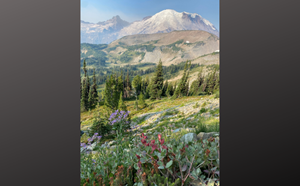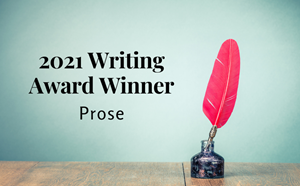
From the Chair
“When did you come here?”
The question was posed by a friend who was born and raised in the Pittsburgh area, southwestern Pennsylvania. There is an aspect of the local culture that can be found in many American places: if you weren’t born here, you are from somewhere else and will never be regarded as a native.
My answer: forty years ago.
“For school?”
Yes. I started out in a program in which one earns a bachelor’s degree and a Doctor of Medicine in five years instead of the usual eight. I lasted a year before I realized what a grievous error I had made and quit, to finish my undergraduate education by pursuing a more conventional curriculum.
Why? Because I realized - before it was too late - that what I had chosen to sacrifice was the opportunity to become an educated man, in the traditional sense of that phrase.
The Association of American Colleges and Universities describes a “liberal education” as one that fosters “broad knowledge of the wider world (eg, science, culture, and society)” and “a sense of social responsibility, as well as strong and transferable intellectual and practical skills such as communication, analytical and problem-solving skills.”
Foundational to a liberal education are the liberal arts, which - in the educational sense - are comprised of literature, philosophy, the physical and social sciences, mathematics, and the arts. These disciplines are distinct from technical and professional studies in that they represent the acquisition of knowledge for its own sake.
So, in college I wanted to obtain a liberal education, with the standard foundation in the liberal arts. Once I entered medical school, I could still pursue a liberal education through a program of self-instruction. College was to provide the foundation for that lifelong endeavor.
When I was sixteen years old, I lacked an understanding of the importance of a liberal education and was only too willing to accelerate my entry into my chosen profession by three years, unwittingly making a sacrifice that would, absent a course correction, have changed my fundamental nature as a human being and as a citizen.
How many of us make such decisions when we are too young or naive to understand the implications? And how many faculties at colleges and universities are modifying undergraduate curricular requirements with an eye toward making them more “practical,” committing the same grievous, short-sighted error I made at sixteen, but not so readily reversed or corrected?
I had another recent conversation with a patient, a forty-ish woman in the ED with whom I had just concluded a review of her symptoms and signs and test results, explaining my diagnostic impression and recommendations for further evaluation and treatment. I was nearing the end of my shift and had time for a bit of small talk. I had learned, in a seminar on patient satisfaction, that patients like small talk. (There had been no mention of the fact that it’s good for doctors’ satisfaction, too.)
I said I had looked at the demographic information in the electronic health record and noticed that she was a writer. What kind of writing did she do? I wondered.
This conversation took place in Wheeling, West Virginia. She had a special interest in the history of the state, and much of her writing was connected with that, producing pieces for newspapers and magazines across the state. And she had just accepted an invitation to compile and edit a collection of West Virginia humor - not humor about West Virginia or West Virginians, but the humor of, and by, and for West Virginians. I immediately thought this would be full of pithy stories with amusing insights into life’s truths in small towns and rural areas of Appalachia, and further conversation suggested my expectation would be borne out.
American history has long fascinated me, and the chance to engage in conversation a writer with a highly developed interest in a particular slice of it was a delight.
We both left at the end of my shift feeling so much brighter in disposition than when either of us had arrived at the hospital that day. And for that I thank all the professors who taught me before I embarked upon my medical education and prepared me to stay, for decades to come, on the path to becoming an educated man.
Robert C. Solomon, MD, FACEP
The Liberal Arts in a Liberal Education




